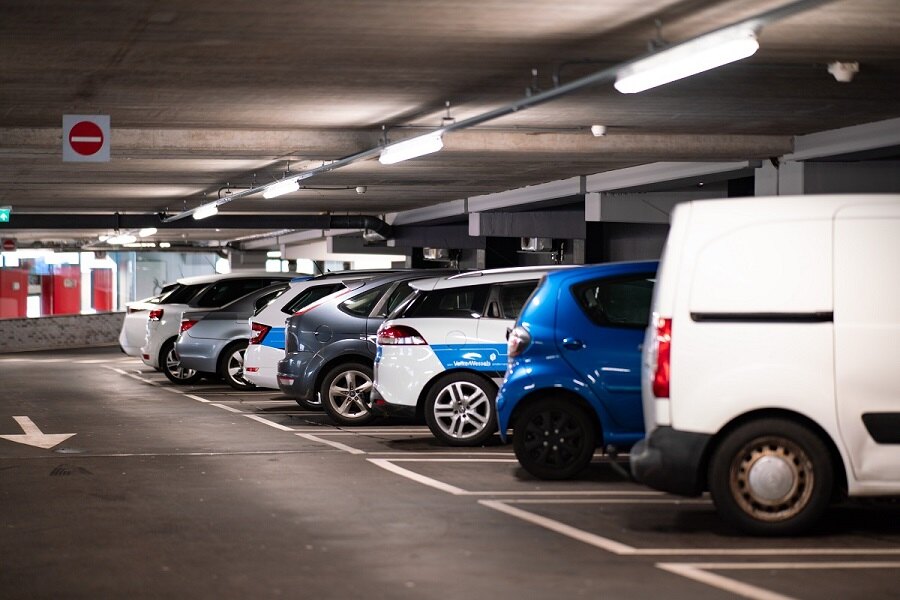For many company car drivers, the search for a parking space is a daily challenge. Not only is this often very time-consuming and frustrating, it also means costs for the fleet. The solution is a system called Smart Parking. Read this blog post to find out exactly what the term means and what benefits it brings to the fleet.
Contents
What is smart parking and how does it work?
Smart parking refers to the integration of intelligent technologies such as cloud computing, AI and IoT devices to optimize parking space usage. This involves installing cameras and/or embedding sensors in road surfaces that detect whether parking spaces are occupied or available. The real-time data collected is analyzed by IoT devices and transmitted via a Wi-Fi or wired internet connection.
The information can then be passed on to drivers via web and smartphone applications. Smartphone apps, for example, show not only the available parking spaces but also the costs and provide information on whether charging stations for electric vehicles are available. Parking costs are also billed via the app.
Advantages of smart parking for the vehicle fleet

Smart Parking in practice
Future prospects and development trends for the vehicle fleet
The most important facts about smart parking at a glance
Smart parking uses cameras and sensors to monitor parking spaces and provide real-time information about available parking spaces.
Intelligent parking space management reduces the time company car drivers have to spend searching for parking spaces. At the same time, fuel consumption is minimized, which can reduce fleet costs.
The integration of AI and machine learning enables accurate parking space predictions and individual driver preferences. Intelligent traffic management systems guide drivers to optimal parking spaces in real time.
Further Fleet Knowledge
If you liked this article and would like to know more about this topic, we recommend these articles.

Electric Car vs. Combustion Engine: Which Performs Better?




